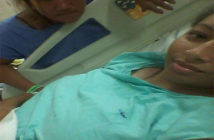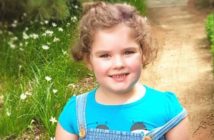Women Win is an organisation that helps adolescent girls to exercise their rights through sport. It is working with the Laureus Sport for Good Foundation to produce important research that will be of immense value to the Sport for Development community. In this exclusive article on Laureus.com, MARIA BOBENRIETH, Executive Director of Women Win, looks to the future
According to the United Nations Foundation, the “well-being of adolescent girls is the key to eliminating poverty, achieving social justice, stabilizing the population, and preventing foreseeable humanitarian crises”.
A big statement for sure, but right now in the world, there are almost 600 million adolescent girls who can create change, if only their well-being is taken care of.
At Women Win we believe in each and every one of these girls, and we use the power of sport to help them achieve these aims. However the success of adolescent girls does not happen in isolation. Through our work with partners to equip adolescent girls to exercise their rights through sport, we have become convinced that a holistic, community centred approach is vital for sustainable success and prosperity.
Community is one of the most powerful words in any language, and is one of the greatest influences on an adolescent girl’s life. A girl’s community often dictates customs or traditions, the expected roles of women and girls, and the services and support systems available.
When our local partners introduce sport as a tool to empower girls, they must inevitably obtain permission from the girls’ communities. Parents, teachers, or religious leaders are often the crucial link between what is legally promised and what is practically achieved, and may be the key decision makers in a young girl’s life.
Without involvement or acceptance from the community, even finding the girls who can benefit from services can be difficult. Because of this, community involvement is critical. Without opportunity, social isolation, economic vulnerability and lack of access to services prevent healthy transitions from girlhood to womanhood, especially for vulnerable adolescent girls.
For an adolescent girl, her sense of community is often limited to her immediate family. However, once she starts to play sports, a girl often develops a broader view of, and acquires access to, a bigger community. This access to an extended community is critical as she is able to build peer networks and social capital. She starts with making friends and then in well-designed sport programmes, she also gains access to female mentors and role models.
This social capital is a form of economic and cultural capital where the social networks grow. These networks become a central lifeline for her and are marked by trust and co-operation. For an adolescent girl, during this critical and perilous point in her life, this social capital can make a huge and marked difference for her. It can keep her in school, delay early marriage, prevent gender-based violence, give her access to her sexual and reproductive health and rights and achieve much higher levels of economic empowerment.
Moreover, sporting events which allow adolescent girls to be visible in the public sphere, often changes the communities’ perception of what she can achieve. This in turn can lead to direct changes in her status and condition, meaning that she will be seen as a valuable and strong member of her community.
For example our data shows that after their daughters’ participated in a sport and life skills programme, 94% of parents said they thought that, “members of our community trust and listen to my daughter more than they did one year ago”. And 80% of girls agreed that their community was now interested in what they had to say.
In Bangladesh, the parents of participants see the impact on the community first hand. One said: “I am glad I kept my daughter in the programme. When she joined I heard a lot of negative comments from people in our village. Now these same people praise her. She has become an active member of the community, and is trying to make a difference in the lives of others, especially young girls. People here used to say girls should not play sports, but now they have changed their mind after seeing all the good work my daughter and her friends are doing for the community.”
In all areas of girls’ empowerment, it is important to involve and engage community, both as a support system for the girl, and so that the change in girls reaches beyond themselves and into the world. But especially in the Sport for Development sector, the participation of community is essential.
One of the unique values of sport is its ability to bring people together, to break down cultural and social barriers and to build confidence in players. These changes cannot happen without an inclusive safe place comprised of people who mutually define relationships that are important to their social identity. They can’t happen without community.
Women Winis the global leader in girls’ empowerment through sport. We leverage the power of play to help girls build leadership and become better equipped to exercise their rights. Sport is only our tool. Our end game is helping girls thrive as they face the most pressing issues of adolescence, including accessing sexual and reproductive health and rights, addressing gender-based violence and achieving economic empowerment.



